All Formats & Editions

An Essay on the Principle of Population: Or, A ...
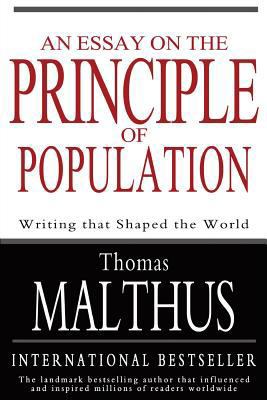
An Essay on the Principle of Population
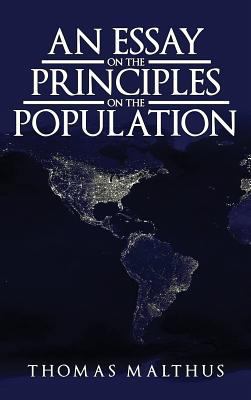
An Essay on the Principle of Population: The Or...
Thomas Malthus was a mild-mannered economist who set the world afire in 1798 with this essay on the 'principle of population.' Prompted to put his thoughts down on paper in response to a work by William Godwin ("Avarice and Profusion") and other writers, such as Marquis de...
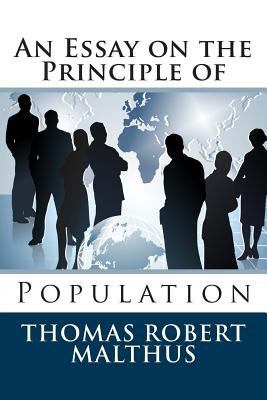
An Essay on the Principle of Population
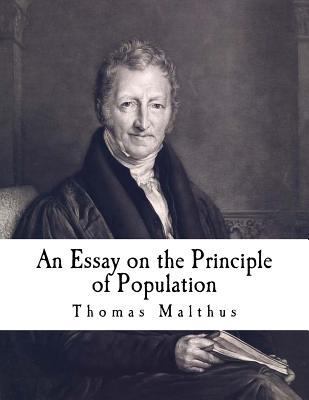
An Essay on the Principle of Population: The Fu...
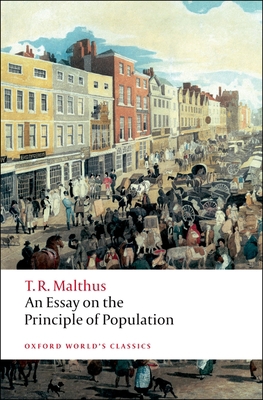
An Essay on the Principle of Population
As the world's population continues to grow at a frighteningly rapid rate, Malthus's classic warning against overpopulation gains increasing importance. An Essay on the Principle of Population (1798) examines the tendency of human numbers to outstrip their resources, and argues...
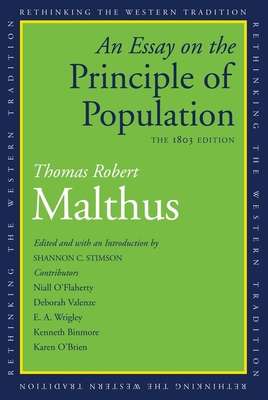
An Essay on the Principle of Population: The 18...
A new edition of the authoritative 1803 version of Malthus's work together with critical essays exploring its influence in political, social, economic, and literary thought, Malthus's Essay on the Principle of Population remains one of the most influential works of political...
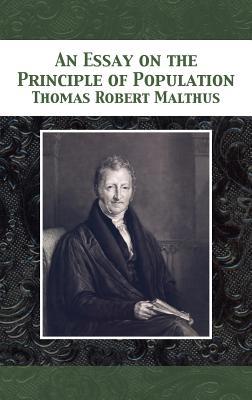
An Essay on the Principle of Population
The book An Essay on the Principle of Population was first published anonymously in 1798, but the author was soon identified as Thomas Robert Malthus. The book predicted a grim future, as population would increase geometrically, doubling every 25 years, but food production...

An Essay on the Principle of Population
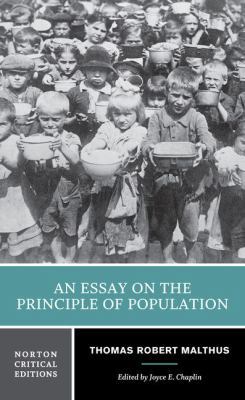
An Essay on the Principle of Population: A Nort...
This Norton Critical Edition includes:
- An introduction and explanatory annotations by Joyce E. Chaplin.
- Malthus's Essay in its first published version (1798) along with selections from the expanded version (1803), which he considered definitive, as well as his Appendix...

An Essay on the Principle of Population
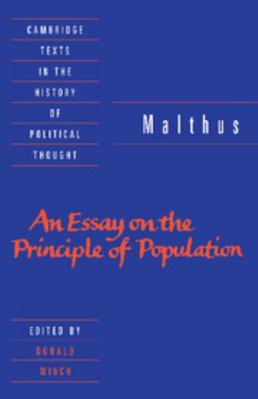
Malthus: 'an Essay on the Principle of Population'
This 1992 volume makes available to a student audience one of the most controversial and misunderstood works published during the last two hundred years. Malthus' Essay on the Principle of Population began life in 1798 as a polite attack on some post-French-revolutionary speculations...
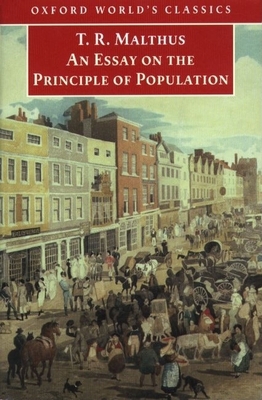
An Essay on the Principle of Population
As the world's population continues to grow at a frighteningly rapid rate, Malthus's classic warning against overpopulation gains increasing importance. An Essay on the Principle of Population (1798) examines the tendency of human numbers to outstrip their resources, and argues...
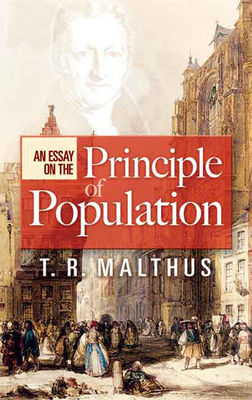
An Essay on the Principle of Population
The first major study of population size and its tremendous importance to the character and quality of society, this polemic examines the tendency of human numbers to outstrip their resources. Pivotal in establishing the field of demography, it remains crucial to understanding...
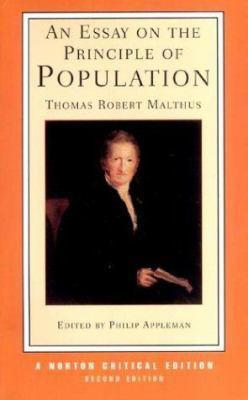
An Essay on the Principle of Population
In many countries, supplies of food and water are inadequate to support the population, so the world falls deeper and deeper into what economists call the "Malthusian trap," named for the writer whose work, more than any other, brought attention to the population dilemma. Philip...
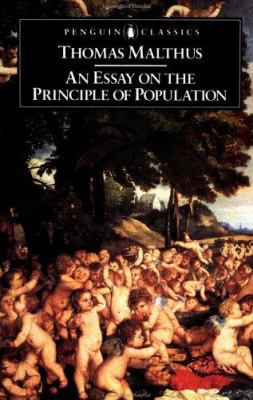
An Essay on the Principle of Population and a S...
The provocative historical work on social economy, demography, and population control. Malthus' life's work on human population and its dependency on food production and the environment was highly controversial on publication in 1798. He predicted what is known as the Malthusian...
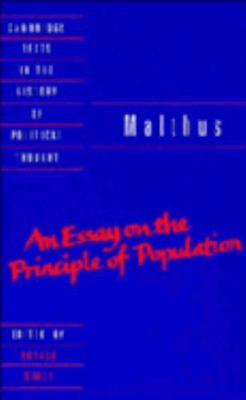
Malthus: 'an Essay on the Principle of Population'
This 1992 volume makes available to a student audience one of the most controversial and misunderstood works published during the last two hundred years. Malthus' Essay on the Principle of Population began life in 1798 as a polite attack on some post-French-revolutionary speculations...
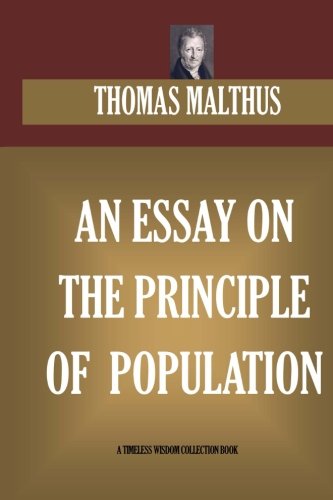
An Essay on the Principle of Population (Timele...
Thomas Robert Malthus was an English cleric and scholar, influential in the fields of political economy and demography.In his book An Essay on the Principle of Population, one of the classics of political economy of all times, he observed that sooner or later, population growth...
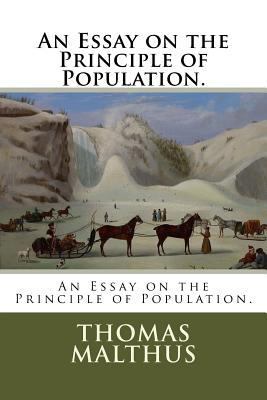
An Essay on the Principle of Population.
Thomas Robert Malthus 13 February 1766 - 23 December 1834) was an English cleric and scholar, influential in the fields of political economy and demography. 2] Malthus himself used only his middle name, Robert. In his 1798 book An Essay on the Principle of Population, Malthus...

An Essay on the Principle of Population
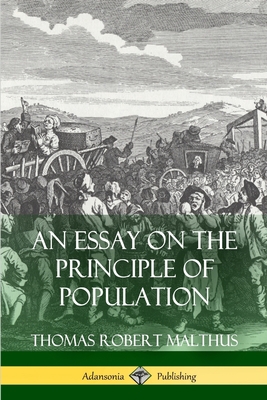
An Essay on the Principle of Population

An Essay on the Principle of Population
The Reverend Thomas Robert Malthus (14 February 1766 - 29 December 1834) was an English scholar who became influential in the previously unrecognized fields of political economics and demography, and he even popularized the economic theory of rent. Among his writings, Malthus...
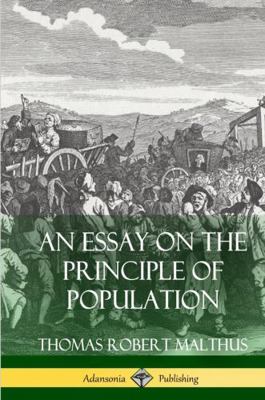
An Essay on the Principle of Population (Hardco...
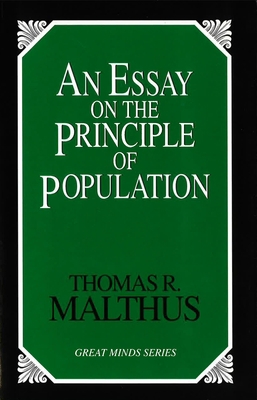
An Essay on the Principle of Population
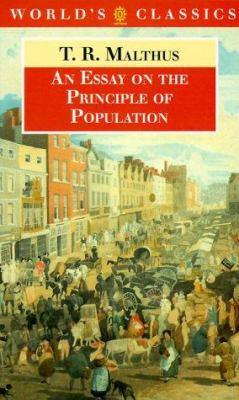
An Essay on the Principle of Population
As the world's population continues to grow at a frighteningly rapid rate, Malthus's classic warning against overpopulation gains increasing importance. An Essay on the Principle of Population (1798) examines the tendency of human numbers to outstrip their resources, and argues...



